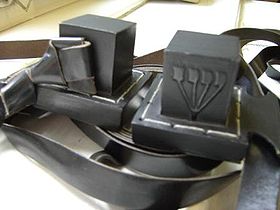
Parashat Achare Mot – Kedoshim
The parsha of Kedoshim opens when G-d tells Moshe, “Speak to the entire congregation of the children of Israel, and say to them, ‘Be holy,’ because I, the L-rd your G-d, am holy” (Leviticus 19:2). This command to ‘be holy’ is the opening of the parsha because it includes all the other commandments in the parsha which follow it. Apparently, this mitzvah commands us that when we do G-d’s mitzvot they should not be like a burden or yoke upon us. In other words, we should not do the mitzvot with the desire to be finished with them as soon as possible, like a child who runs away from a school where he has been forcefully compelled to study. Rather, a person’s desire to do the mitzvot should emanate from the depths of his heart.
It is even possible that a person could be very scrupulous and work very hard to do the mitzvot, yet he is actually far away from them. Despite his strenuous efforts, it might be that the mitzvot are really a heavy burden upon him, and his heart is really bound to material things and the affairs of this world. Therefore, the Torah commands us with this inclusive mitzvah to ‘be holy’.
The Hebrew word for `holy’ is “kadosh,” and it is well-known that the main implication of the word kadosh is “separate”. This is true in both its positive and negative connotations. For example, a prostitute is a “kedaishah” because she is separated and set aside for sin. In its positive connotation, the word kadosh (holy) implies separation and withdrawal from the material into the spiritual.
Although all the mitzvot raise and separate a person from the material, this function also depends somewhat upon the mentality of the person who is doing them. Therefore, we are commanded not to do the mitzvot because of compulsion or as a merely external act. Rather, we should do them as acts deriving from our inner being, and we should completely identify with them. One of the mitzvot commanded in the parsha is the prohibition to eat fruit from a tree for the first three years that it bears fruit. The first three years’ fruit of a tree is called “orla,” the same word used for that part of the skin which is removed by circumcision. The verse (Leviticus 19:23) which prohibits eating fruit which is orla uses a difficult arrangement of words: “ve’oraltem orlato”. The Ibn Ezra explains these difficult words by stating, firstly, that they do not constitute the actual prohibition since the verse concludes by stating explicitly, “…You shall not eat them”. Then he writes, “It shall be considered in your eyes as an uncircumcised thing.”
According to what has been written here, we can attempt to explain what the Ibn Ezra intended. When a person throws away the fruit of the first three years for which he laboured, then he should think that it is as if this fruit is unhealthy or spoiled and he also does not want to eat it. In other words, he should identify with the mitzvah and want to do it as if it were his own desire. That is how it should appear in his own eyes.
In the same way, a person who wants to advance in his service of G-d must strive to make his desires and emotions consistent with the Will of G-d, as our sages have taught, “Make your will His Will….”. The will of a person should become completely identified with G-d’s Will. In this way he will become close to G-d and like Him.
Once a child is born he begins to grow and develop at an unbelievable rate. By the time he is one year old his weight has tripled from what it was at birth. Most of the time, the child is either eating or sleeping. His sleep time, specifically, is the time for digestion when the food he has eaten is converted into parts of his body and bones. In other words, building the physical body and its development occurs, mainly, during rest and sleep time.
Even at the time when the physical development of a person ceases, his personal, spiritual development does not stop. He continues to think, his character traits continue to operate, and he will constantly be in a position of choosing between good and evil. Just as there is a period of digestion and conversion of food into the physical substance of the body, we find the same parallel process in the spiritual building of the soul. There is a time of learning, when a person invests all his strength in the toil of Torah. This is like the time of eating, but for the soul. In the same way, there is also a time for the soul to digest its nourishment and convert it into the elements of spiritual being. This is the period when a person establishes, realises or substantiates the Torah he has learned, and it is called “Kiyum HaTorah”.
In our prayers we ask for G-d’s assistance that we should be able “to learn and to teach, to guard and to do, and to fulfill (kiyum)”. In other words, learning and kiyum are two separate functions done in two separate times. There is a time when a person must stop learning in order to take care of transient needs. Concerning this period Chazal have said that there is a time when cessation of learning Torah is its kiyum, and it means, simply, that transient needs are also part of G-d’s Will.
However, there is also another explanation to these words that there is a time when cessation of learning is its kiyum in order that it should endure and not spoil. There is a time when the Torah requires kiyum, a time for a person’s soul to digest his spiritual food and to convert it into the substance of his spiritual being. That time, it has already been explained, is the main time of growth and development. The holidays throughout the year, Shabbat and the festivals, can be equated to the time of spiritual eating for all of Israel. The days between them are like those rest periods when the digestion and conversion of the spiritual food takes place. This is the time of kiyum for all of Israel, and this description especially characterises the days of counting the Omer between Pesach and Shavuot. This is an absolutely necessary period for the soul to digest the lessons it has absorbed on the night of the seder, throughout Chol Hamoed and the seventh day of Pesach. All the sparks of light and impressions of kedushah which enlightened those days must be digested and converted into spiritual substance, as it is written, “Place it upon your hearts.” (Duet. 30:1). In this way we become ready to receive the Torah anew on Shavuot.
There is a verse in Psalms (92:8) which we recite during Kabbalat Shabbat: “When the wicked propagate like weeds and all the workers of iniquity sprout forth, to destroy them forever”. This is like a person who has become severely sick, and all the doctors have despaired of finding a cure for him. Finally, one great doctor discovers the proper medicine for him. However, when the sick person takes this medicine, his condition becomes worse, his entire body breaks out with sores, and it seems that only a few moments lie between him and death. He says to the doctor, “Is this medicine, and is this what it does?” The doctor answers, “You should know that your illness has penetrated very deeply into your body. The strong medicine I gave you has extracted the illness from within you to the outside of your body. Now that it has gone out, I can give you another medicine which will cure you completely.”
The verse from Psalms which we recite in Kabbalat Shabbat is the same case. We see the wicked flourishing like grass. All the workers of iniquity sprout forth like mushrooms after the rain. The ways of evil people prosper. In other words, the sickness has appeared upon the body, but now the inner being is clean and purified. Now there is hope for fulfilment of the verse’s conclusion, “…to destroy them forever.”
The verse (19:15) tells us “You shall judge your fellow man with righteousness”, obligating us to give someone the benefit of the doubt, when we see him performing an action which could be interpreted in his favour. Rabbi Aryeh Levine, renowned for his propensity to judge people favourably, related to someone how he acquired this attribute with the following incident:
“It happened when I attended the funeral of Rabbi Eliezer Rivlin, a prominent treasurer of charity funds in Jerusalem. The deceased had an intimate friend named Rabbi Shmuel Kook with whom he had worked together for thirty years. When the funeral procession began, I noticed that Rabbi Kook entered a flower shop and purchased a flower pot.
“I was shocked and went over to Rabbi Kook to rebuke him. ‘Is this the way to act at the funeral of a lifelong friend?’ I censured him. ‘Couldn’t you find a more appropriate time to buy a flower pot?’
“He then explained his behaviour. He had befriended someone who was hospitalised with a highly contagious disease. The day before, that person had died. The doctors, who weren’t Jewish, understandably ordered that all of that person’s belongings be burned. When Rav Shmuel found out about the orders, he pleaded with the doctors not to burn the deceased’s tefillin, but to allow him to bury them instead. They finally agreed that if he would obtain an earthenware flower pot, they would permit the tefillin to be buried in it. But they warned him that he had only until twelve o’clock to bring the flower pot. Therefore, he had to leave the funeral procession of his best friend in order to meet the deadline.
“At that moment, I made a resolution to always judge people favourably.”
-taken from “Love Your Neighbour”, by Rabbi Zelig Pliskin.
SHABBAT SHALOM





